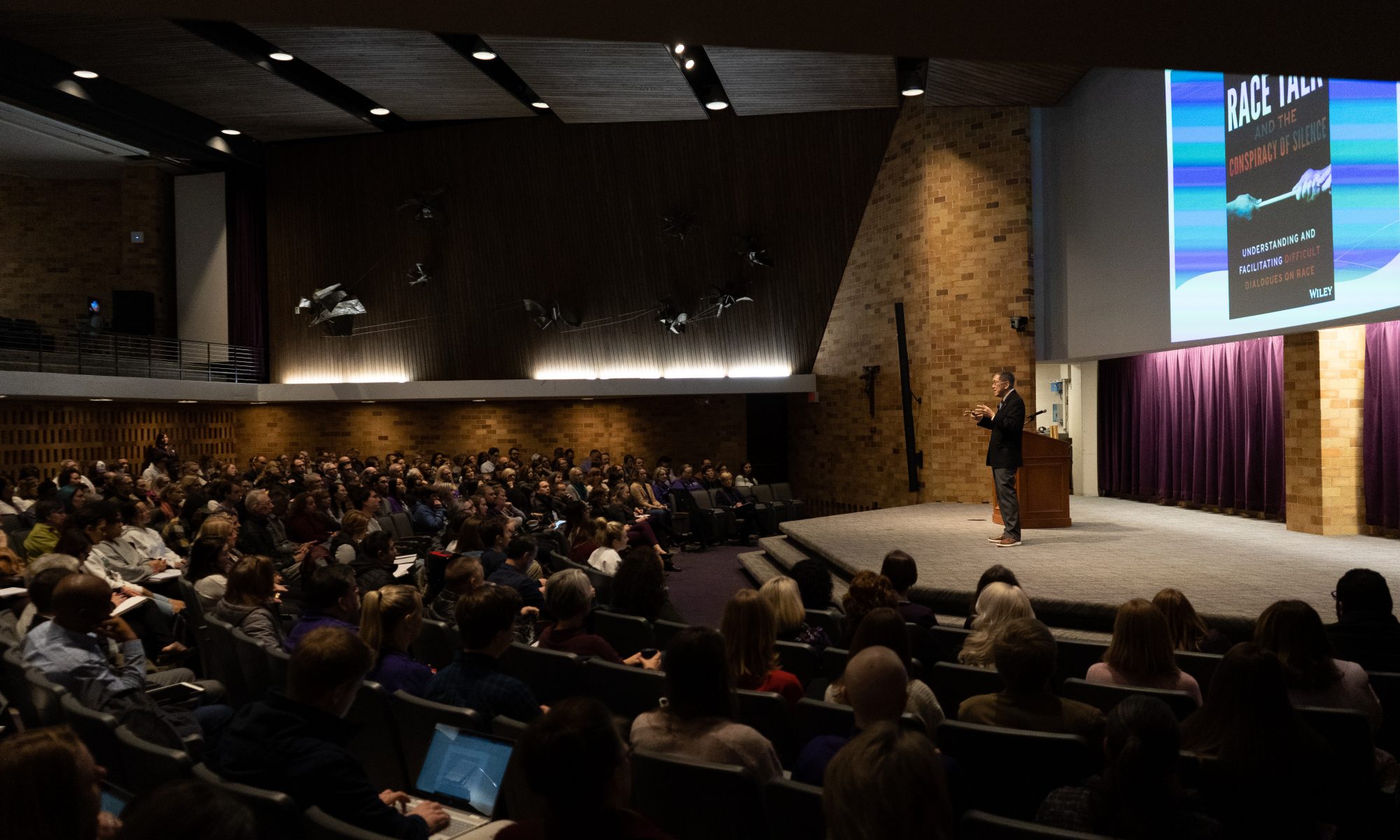
Derald Wong Sue speaks to the St. Thomas community. Sue presented about microaggressions in the O’Shaughnessy Educational Center’s auditorium Feb. 11. (Song Johansen/TommieMedia)
On Feb. 11, Derald Wing Sue of Columbia University presented “Microaggressions: Toxic Rain on Educational Settings and Daily Life” to an audience in St. Thomas’ O’Shaughnessy Educational Center.
St. Thomas community members gathered in the building’s auditorium, filling the main space and moving into the upper balconies.
“Microaggressions are like death by a thousand cuts,” Sue said.
Sue has written three books focused on microaggressions and how they impact those affected by them, as well as how microaggressions can be approached in a classroom setting.
“Microaggressions are the everyday slights, put-downs, insults and invalidations that people of color, women, or any marginalized group member in our society can experience in their day to day interactions,” Sue said. “What you need to understand is that microaggressions are not simply isolated incidents or behaviors that occur that you can easily stop.”

President Julie Sullivan listens among St. Thomas students, faculty and staff. (Song Johansen/TommieMedia)
Three types of microaggressions exist: environmental, verbal and non-verbal. These can manifest as a microassault, which Sue defined as “old-fashioned racism,” or as microinsults and microinvalidations, which are typically outside of the perpetrator’s conscious awareness.
“When we talk about racism, when we talk about bias, microaggressions and so forth, we’re really talking about a clash of racial reality, and the racial reality of people of color is really quite different than the racial reality of many of our white brothers and sisters,” Sue said.
Euro-American curriculums often alienate students of color, Sue said. He explained the idea that Christopher Columbus discovered America has become truth in the elementary school system, which inherently challenges Native American students who were taught a different story. This curriculum and type of teaching can easily turn into cultural oppression, or what Sue refers to as “forced compliance.”
“They have in essence sold out their integrity. This is something that many people of color experience constantly,” Sue said. “All of the research on microaggressions comes to indicate that they are very harmful. They are not insignificant slides. they are long-lasting and accumulate in terms of their harm.”

A full auditorium listens to Sue. (Song Johansen/TommieMedia)
“With microaggressions, people don’t even realize that they’re contributing to racism, even though they are every single day,” said Kiana Schuchard, a junior neuroscience student at St. Thomas. “People isolate certain situations and don’t realize the greater context of racial incidents.”
The master narrative in our society overrides the narrative coming from marginalized group members. The former follows the belief that racism is a thing of the past, while the counter narrative insists that racism is alive and well, Sue said.
“I liked how he talked about how we’re not in a post-racial environment,” Schuchard said. “He just pointed out that racism is within our culture and has been for all of time.”
“Microaggressions are constant and continual without an end date. Microaggressions are chronic in the lives of people of color,” Sue said.
Maddie Peters can be reached at pete9542@stthomas.edu.



Forgive me if I am committing a microaggression, but reading this makes me overjoyed that I retired from UST last year.